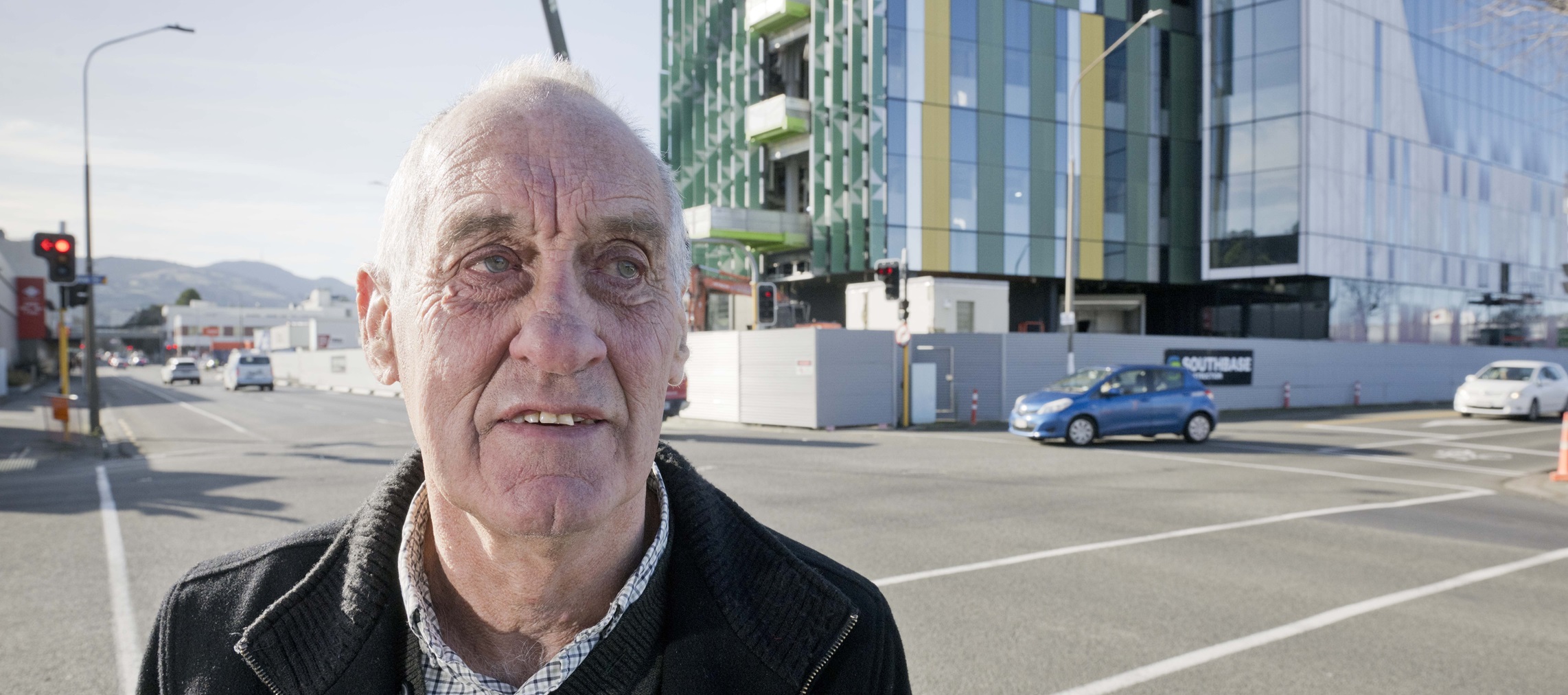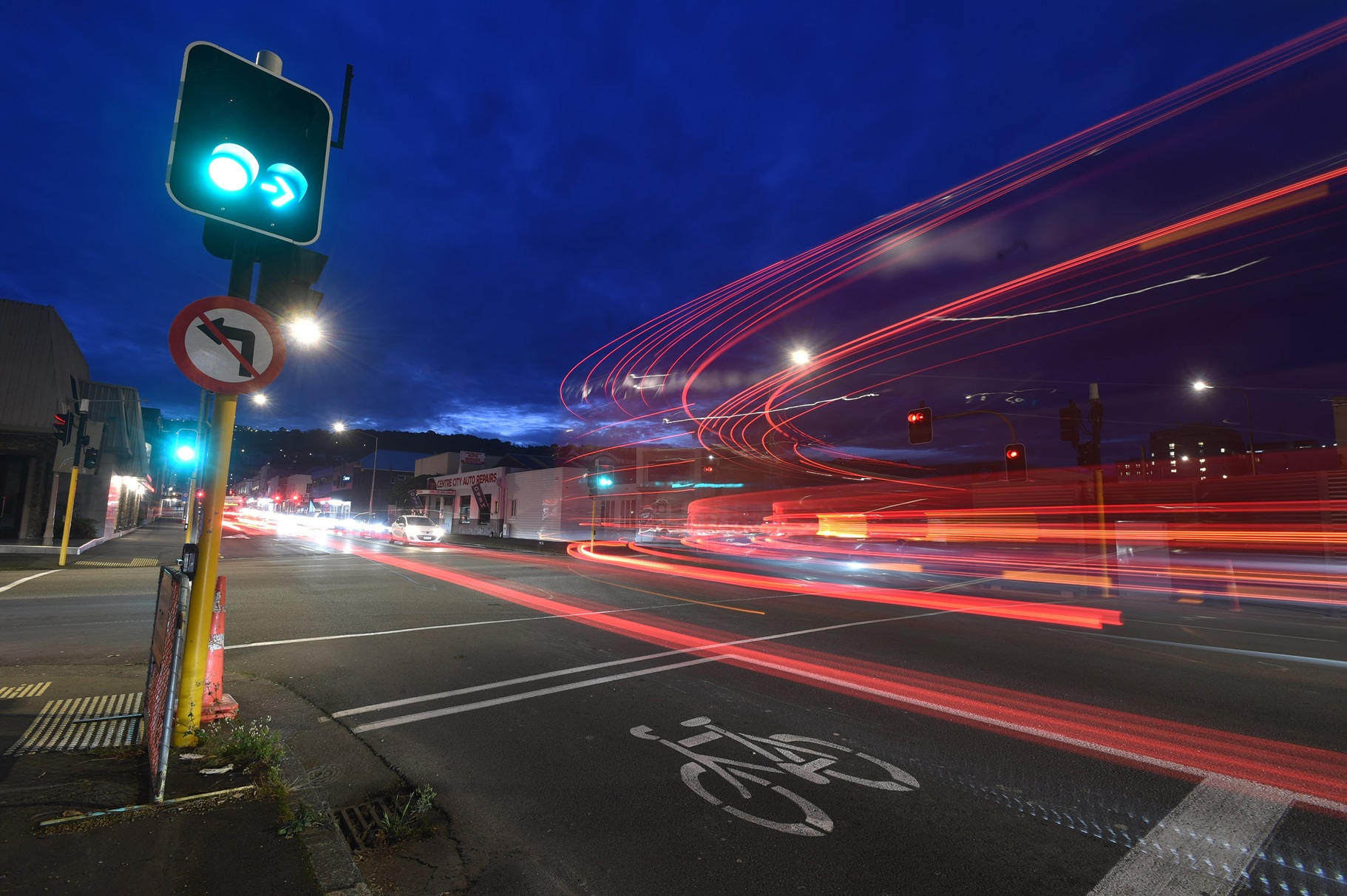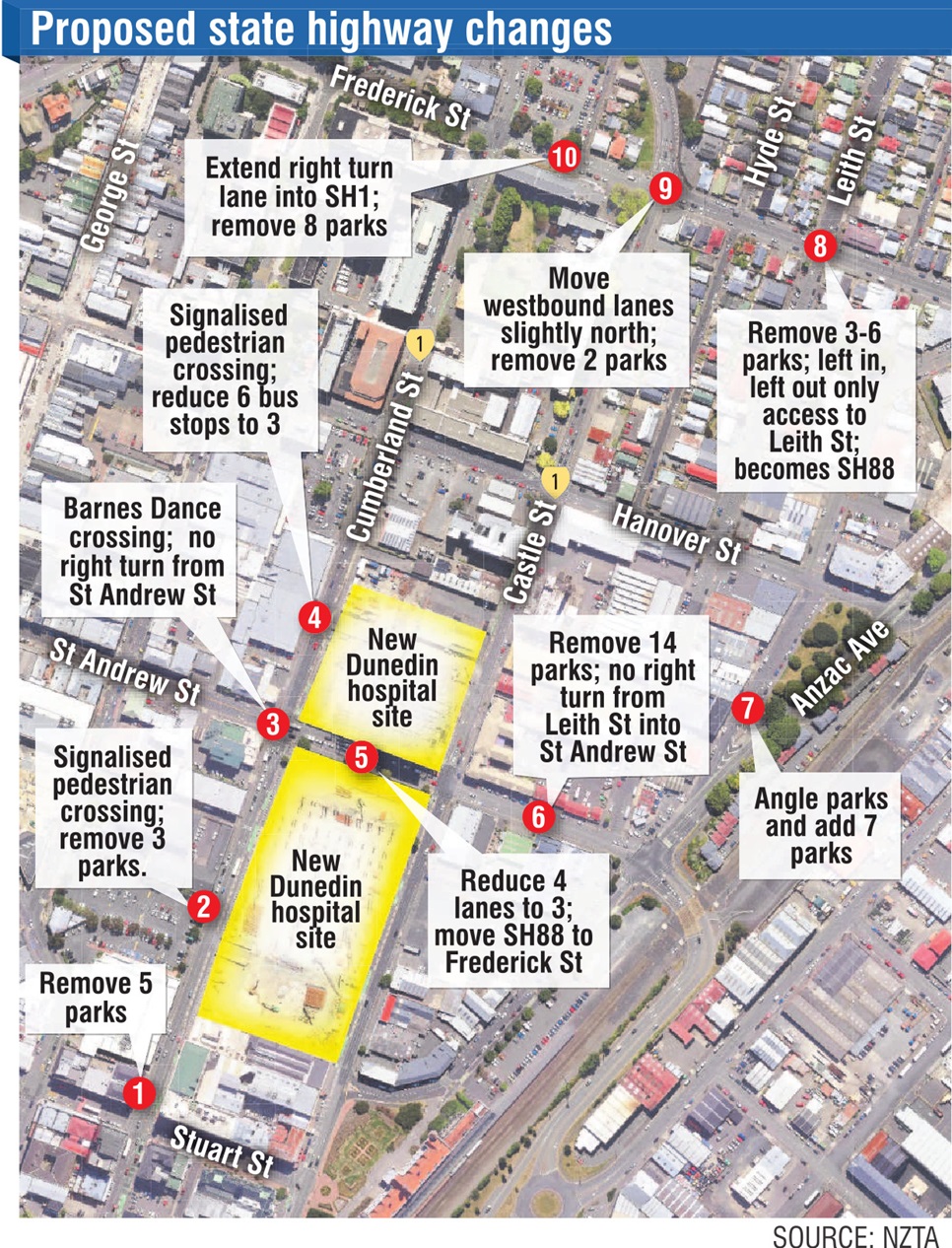
It comes amid concern from transport sector representatives the changes will lead to traffic congestion; in contrast, city councillors are more relaxed about the proposal.
On Tuesday, roading changes aimed at making the area around the new Dunedin hospital safer were released for public consultation.
The changes proposed by NZ Transport Agency Waka Kotahi (NZTA) will affect Cumberland St (State Highway 1) and St Andrew St (State Highway 88) where a Barnes Dance crossing, where pedestrians cross in all directions at once, is planned.
Two traffic light-controlled pedestrian crossings would cross Cumberland St outside Woolworths and New World supermarkets and the westbound right turn from St Andrew St on to Cumberland St would be removed.
Under the previous government, it was widely expected the speed limit would be dropped on the one-way next to the hospital.
But yesterday, NZTA regional relationships director Ian Duncan said the affected streets were already considered a "low-speed operating environment" — traffic speeds were typically below 50kmh.
"While speed limit changes are not proposed for now on the affected highways near the new Dunedin hospital, any roading changes that proceed after public engagement will be monitored to gauge the effect of changes on traffic speeds," he said.
"Any changes proposed in future would then need to be considered."

"I can’t see how there’s going to be any more people using the new hospital than there is using the old hospital — we don’t have an issue with pedestrians [there]," he said.
"What they need to do is just wait until the hospital is built and then see how the traffic flows — if there’s issues, then they can make modifications to it."
Removing the right-hand turn from St Andrew St would only slow traffic and cause congestion, he said.
Chief executive of road freight industry association Ia Ara Aotearoa Transporting New Zealand Dom Kalasih said it would be helpful for NZTA to show its modelling to prove there would be improvements.
At a glance, he was concerned the frequency of crossings on Cumberland St — five traffic-light controlled pedestrian crossings in a 500m stretch of road — could slow traffic.

"Our biggest issue is potential for more congestion, not less."
Dunedin City councillor David Benson-Pope said the changes would accommodate the "inevitable" change in traffic patterns.
Two overbridges between the inpatient and outpatient buildings over St Andrew St had been planned, but this was reduced to one in 2022.
Cr Benson-Pope said while the second bridge should have been retained, the new crossings would improve pedestrian access and safety.
Cr Carmen Houlahan said "at one point they were talking about fully pedestrianising St Andrew St, so I’m happy that’s not happening".

Fire and Emergency New Zealand acting Otago district manager Craig Geddes said emergency services would have an exemption for the right-hand turn.
Mr Duncan said parking removal and extended green signal time would improve northbound traffic flow.
A net loss of several dozen carparks was also planned.
No significant impact on rail crossings was expected.
Construction was expected between 2027 and 2030 — a more detailed timeline would be developed after funding was approved.











